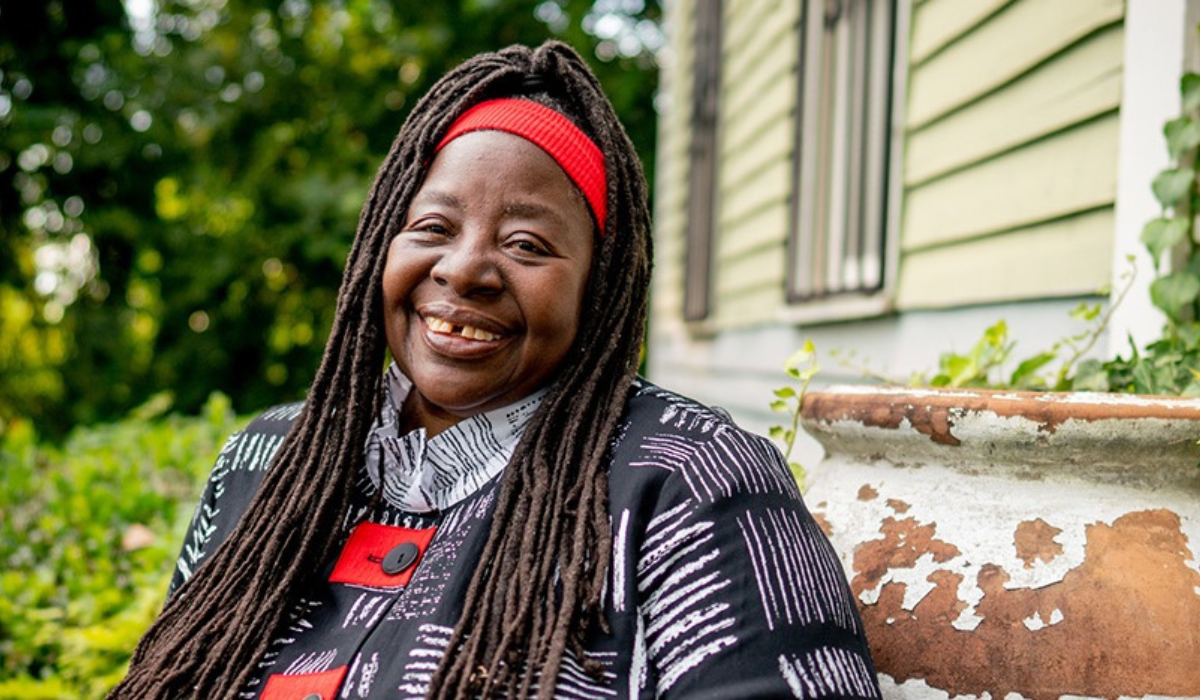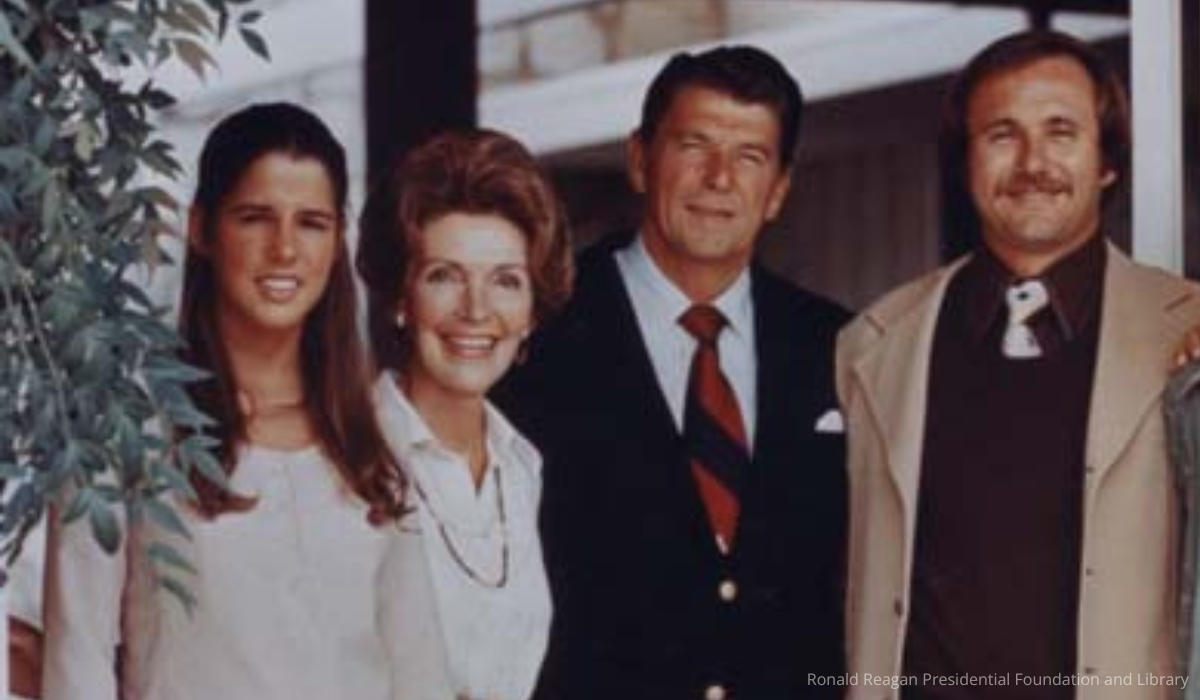Afraid to Speak Up?

These days, many of us feel less certain than ever about speaking up—and for good reason. We saw what happened to Jimmy Kimmel after the conservative backlash over remarks he made during a monologue about the death of Charlie Kirk. We’ve read stories of people being fired after posting about Kirk on their private social media accounts. It’s left many of us wondering: Is it worth the risk to speak openly and honestly anymore?
To help us answer that question, The Sunday Paper talked to Loretta J. Ross, author of Calling In: How to Start Making Change with Those You’d Rather Cancel. Ross is an academic and activist who has spent years speaking up for what she believes is right. Along the way, she’s learned that holding people accountable through respectful dialogue, grace, and love—what she calls “calling in”—is always more effective than calling someone out.
Here, Ross shares her thoughts on what each of us can do to help build a culture where speaking up leads to connection, not cancellation.
A CONVERSATION WITH LORETTA J. ROSS
What would you say to someone who wants to hold others accountable but fears being cancelled?
Elie Wiesel said there may not be a time you can stop the injustice, but there should never be a time you fail to speak up against it. And I take that to heart. I may not be able to stop the human rights violations and the indignities and the corruption that seems to be characteristic of our times and particularly our government right now, but I can never fail up fail to speak up against it.
Now that doesn’t mean that’s for everyone. Because in my calling in theory, you have to pause and do a personal assessment of where you are at the time. If you’re not in a place where you can be constructive, it’s probably best that you don’t speak up, because you’re going to add to the noise instead of adding to the solutions.
But after you’ve done your self-assessment, if you’re in a place where you can call people in with respect, grace, forgiveness, and nuance, then you’re not only going to improve the situation, but you’re going to feel better about yourself—and you’ll be contributing to the weakening of those whose only currency is lies and violence.
What’s your assessment of what happened last week with Jimmy Kimmel being cancelled, and then reinstated?
Every authoritarian fascist fears the court jester—the person who can speak the truth about what is going on and cause people to mock their weaknesses. It animates the insecurities of the narcissist, the authoritarians, and the fascist dictators. And so in addition to canceling critical thinkers, like going after the media, educational institutions, and the judiciary, they want to go after the culture warriors—the people who can explain through entertainment and art all that is going on. They can say the unspeakable.
I’ve never seen a presidential administration so committed to violating the U.S. Constitution, as if it’s just some mere suggestions, but not actually rules that they must be bound by, like the First Amendment or the separation of church and state, or just blatantly saying, “I am going to use the Department of Justice for my personal vengeance.” Those of us who are able to analyze what’s going have an obligation to speak for the voiceless.
In your view, what’s the boundary between accountability and “cancelling”? How do you discern when public pressure is justified versus when it becomes destructive?
Well, we never want people to get away with doing something wrong. Nobody wants that. But how you pursue accountability matters. It’s not just what you do, it’s how you do it.
You can go after accountability using the tactics of the prison industrial complex, which is to silence people, exile them, shame them, and dispose of them. That’s the cancelation impulse—or as I call it, our inner Karens. But always remember that that’s a choice, because you can also pursue accountability through love, through respect, through remembering the humanity of the person and that they’re much more complicated than this convenient label you’ve attached to them.
I say it in a very simple way that even school kids can understand: You can say what you mean, and you can mean what you say, but you don’t have to say it mean. That’s always a choice.
When you encounter someone who resists “calling in” and demands calling out instead, how do you respond?
I try to analyze why they feel they have to hurt people to prove that they’ve been hurt. Because I want to take their pain and suffering as seriously as I would take my own. Before people become violators, they are victims. Every human being has gone through that same pathway. Calling people out has always been the last resort of the voiceless. I’m trying to offer people a menu of choices—that we actually can invite people into conversations instead of fights. It does not have to be a fight to achieve accountability. And quite often, when you invite people to reconcile their inner good opinion of themselves with their outer behaviors, they’ll do the work for you, because very few people actually want to show up as jerks.
If you could give one concrete practice or habit to people trying to speak truth with kindness in this moment, what would it be?
There’s a metaphor that I say often: Why don’t you treat everybody as if you’re holding their heart in your hand and you don’t want to squeeze too tight. Keep that image in your mind. You have power. You’ve got their heart in your hand. Do you want to slam it on the ground? Do you want to stomp on it? Or do you want to cuddle it and hold it tenderly, like you would like someone else to hold your heart if they had it in their hand?
In a climate where one comment or social media post can haunt you indefinitely, people are terrified to speak up right now. How do we have a conversation despite this?
One of the things that I hope people understand is that vulnerability is a strength. The ability to say, “I made a mistake. I thought that then, but I think something different now.” If you understand how less fearful you become when you stop being afraid of your mistakes, when you stop being afraid that someone will see that you’re not perfect, that you don’t already know everything you should know, you will become so strong and so secure. Because you know that you are always greater than what has happened to you. And by the way, the mistakes you make today you’re going to make bigger ones tomorrow. So get ready. Accept that that’s who you are. You’re a work in progress. And that you’re experiencing the joy of becoming a better human being. And that’s a real fun thing to be intentional about. You have to practice self-forgiveness in order to forgive others. If you punish yourself for not being perfect, you’re going to be very censorious towards others that you don’t see as perfect.
I also say it’s related to our childhood, because when you are a child and if you are severely punished and humiliated for making a mistake, then you think it’s normal to do that to somebody else when you think they’ve made a mistake. But if instead, if you were taught that mistakes weren’t fatal, if you were assured that you were loved despite making a mistake, and if you were taught what you could learn from your mistakes, then you’re going to be predisposed to offer that kind of grace and forgiveness to others.
As adults, we get to choose whether we want to keep living out the trauma of our childhood or make a different choice because we want to show up differently to ourselves and others.
How do you rise above the noise of it all when, when the just feels like chaotic and news and it’s so heavy and dark?
I had the privilege of being mentored by older black women when I was developing my social justice human rights consciousness, and they kept giving me all kinds of wise advice that now I pass on to the young people that I teach at Smith College. The first thing they taught me was to have a consciousness toggle switch that you can flip on and off. There are times you need to be woke and pay close critical attention to everything that’s going on in the world because you’re compelled to do it, and then you need to toggle it up so that you can watch Barbie without a critical feminist analysis and just enjoy the flowers or a football game or whatever brings you joy. That has been my sustainability strategy. That’s why I’ve been able to do this work for more than 50 years, because I never let the work consume me.
I also surround myself with an equal number of political friends and apolitical friends. My apolitical friends actually have ideas that are quite contradictory to mine. But I know both sets of those people will be at my funeral because of the care and compassion we have for each other.
In Victor Frankel’s book, Man’s Search for Meaning, he reported the people who had a better chance of surviving those death camps of the Holocaust were the ones who never lost hope. While they couldn’t control external circumstances, they could control the internal response to those circumstances. And so, I intentionally seek joy. I intentionally seek replenishment. I keep a network of friends.
When you are committed to human rights, your job is to look at the worst things human beings can do to each other. Being intentional about joy and replenishment is part of the job description, because we have to offer a vision for the world we want to deserve, not just the world we have.
Please note that we may receive affiliate commissions from the sales of linked products.



